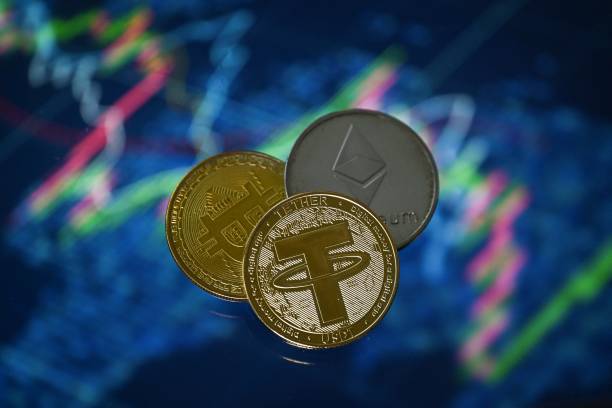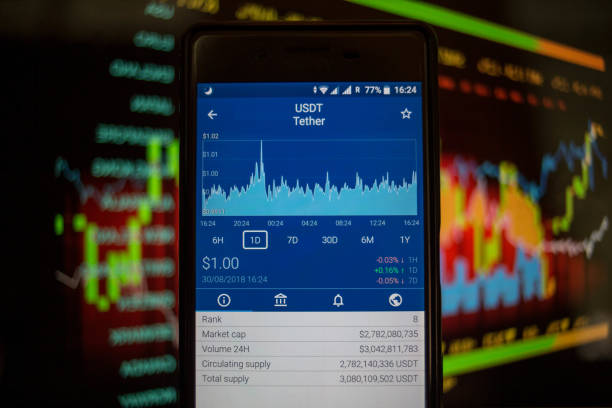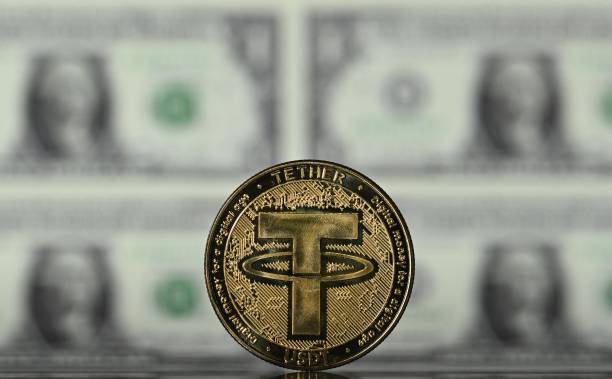
Tether Introduces Its Own AI Agent: Revolutionizing Payment Systems with BTC and USDT
In the fast-evolving world of cryptocurrencies, Tether (USDT) has consistently held a critical role as one of the most widely used stablecoins. Known for its stability and widespread adoption, Tether has now expanded its scope by introducing an innovative AI agent designed to process payments in Bitcoin (BTC) and USDT. This move marks a significant milestone for the company and the cryptocurrency ecosystem as a whole, as it brings together the power of artificial intelligence and blockchain technology to enhance financial transactions.
The Evolution of Tether

Tether was launched in 2014 as a way to bridge the gap between traditional fiat currencies and the volatile world of cryptocurrencies. By pegging USDT to the US dollar on a 1:1 ratio, Tether provided traders and investors with a stable alternative to the fluctuating prices of other cryptocurrencies like Bitcoin or Ethereum. Over the years, USDT has become an integral part of the crypto economy, with billions of dollars traded daily across numerous exchanges.
Despite its success as a stablecoin, Tether has faced various controversies and legal challenges, particularly regarding the transparency of its reserves and whether the company has enough fiat currency backing the circulating supply of USDT. Nevertheless, Tether has continued to innovate and expand its services, with its latest venture into artificial intelligence signaling a new phase in the company’s development.
The Role of AI in Payment Systems
Artificial intelligence (AI) has already made significant inroads in various sectors, from healthcare to finance, due to its ability to automate tasks, analyze vast amounts of data, and make real-time decisions. In the realm of payments, AI offers the potential to optimize transaction processes, increase security, and improve user experiences.
AI can be used to detect fraudulent activities by analyzing transaction patterns and flagging suspicious behavior. Additionally, AI-powered systems can enable faster and more efficient payment processing by predicting and managing liquidity needs. These capabilities are particularly valuable in the volatile world of cryptocurrency, where the speed and accuracy of transactions can make a significant difference.
Tether’s AI agent is designed to leverage these advantages, providing a seamless and secure way to process payments in BTC and USDT. By combining the stability of USDT with the decentralized nature of Bitcoin, Tether aims to offer a unique solution that can meet the needs of both individual users and businesses operating in the crypto space.
How Tether’s AI Agent Works

Tether’s AI agent operates locally, meaning it is designed to function directly on users’ devices, rather than relying on centralized servers or cloud-based systems. This decentralization is one of the key benefits of the AI agent, as it reduces the risks associated with data breaches and enhances privacy. By processing payments locally, the AI agent also ensures that users retain full control over their transactions, further reinforcing the security and trustworthiness of the system.
When a user initiates a payment, the AI agent analyzes the transaction in real-time, determining the most efficient way to process it based on factors like current network conditions, available liquidity, and transaction fees. For example, if the user wants to send USDT to another party, the AI agent will assess the best method for completing the transaction, considering whether to use the Tether blockchain or a layer-2 scaling solution like the Tron network.
The AI system also incorporates machine learning algorithms, which allow it to improve over time. As the agent processes more transactions, it learns from past experiences and refines its decision-making process. This enables the agent to adapt to changing market conditions, optimize transaction flows, and offer increasingly accurate predictions about the best ways to execute payments.
Additionally, the AI agent can automatically adjust payment strategies based on the user’s preferences. For instance, if the user prefers to minimize transaction fees, the AI agent can prioritize low-fee networks or wait for optimal conditions before executing the payment. Alternatively, if speed is a priority, the agent can expedite transactions even if that means higher fees.
Benefits of Tether’s AI Agent
The introduction of Tether’s AI-powered payment system brings several advantages to the cryptocurrency market, including:
- Enhanced Security and Privacy: By processing transactions locally, Tether’s AI agent minimizes the risks of data breaches and hacks. Users can conduct transactions with confidence, knowing that their sensitive information is not stored in a centralized database that could be vulnerable to attacks. Furthermore, the decentralized nature of the AI system aligns with the core principles of blockchain technology, which emphasize privacy and user control.
- Increased Efficiency: The AI agent’s ability to analyze and optimize payment processing in real-time allows for faster, more efficient transactions. This is especially important in the cryptocurrency space, where transaction times and network congestion can often cause delays. By dynamically selecting the best payment route, the AI agent can reduce the time it takes to complete a transaction, providing users with a better overall experience.
- Cost Savings: The AI agent can help users save on transaction fees by choosing the most cost-effective payment methods. By evaluating various networks and adjusting payment strategies, the AI system ensures that users are not overpaying for transactions. This is particularly useful for businesses and traders who conduct frequent transactions and want to minimize costs.
- Scalability: As the cryptocurrency market continues to grow, so too does the demand for payment processing solutions that can handle a large volume of transactions. Tether’s AI agent is designed to scale efficiently, allowing it to manage increasingly complex payment systems without compromising performance. This makes it an ideal solution for both individual users and large-scale businesses.
- Adaptability: The machine learning component of the AI agent allows it to adapt to changing market conditions. This ensures that the system remains relevant and effective, even as the cryptocurrency ecosystem evolves. Whether it’s a new payment network, a shift in user behavior, or changes in regulatory requirements, Tether’s AI agent can adjust its strategies to meet new challenges.
Implications for the Cryptocurrency Ecosystem

Tether’s move into artificial intelligence could have far-reaching implications for the broader cryptocurrency ecosystem. By integrating AI into its payment systems, Tether is helping to demonstrate how blockchain technology and machine learning can work together to create more efficient and secure financial solutions. This could pave the way for other companies in the crypto space to explore similar integrations, further enhancing the functionality of digital currencies and blockchain networks.
Moreover, Tether’s AI-powered payment system could make it easier for mainstream users to adopt cryptocurrencies. With an intuitive, secure, and efficient payment platform, individuals and businesses alike may find it easier to transition from traditional payment methods to crypto-based systems. This could accelerate the mainstream adoption of digital currencies and increase the use cases for USDT and Bitcoin as payment methods.
Conclusion
Tether’s introduction of its AI-powered payment agent represents a significant step forward in the evolution of cryptocurrency payment systems. By combining the stability of USDT with the decentralized power of Bitcoin and the intelligence of artificial learning, Tether has created a solution that can offer enhanced security, greater efficiency, and lower costs for users. As the cryptocurrency space continues to mature, innovations like Tether’s AI agent will play an essential role in driving the adoption and scalability of digital currencies, ultimately helping to shape the future of global finance.

